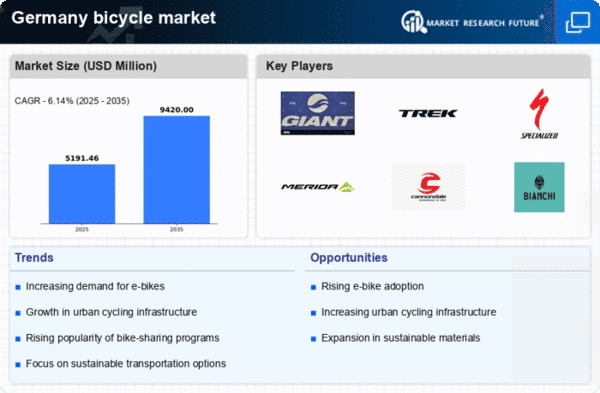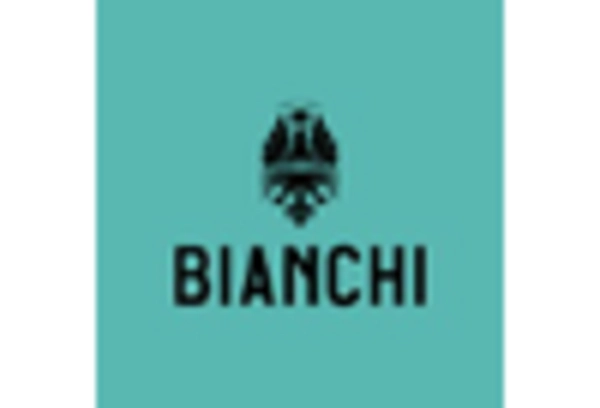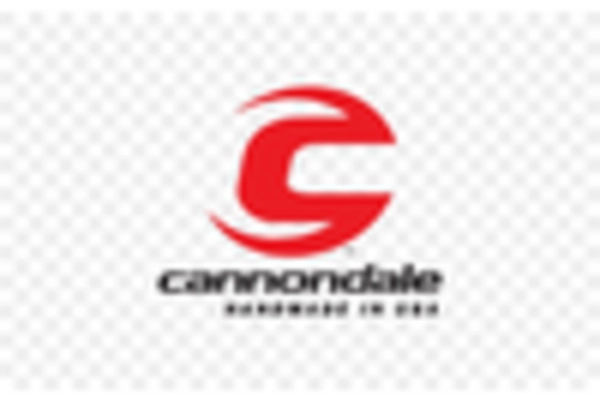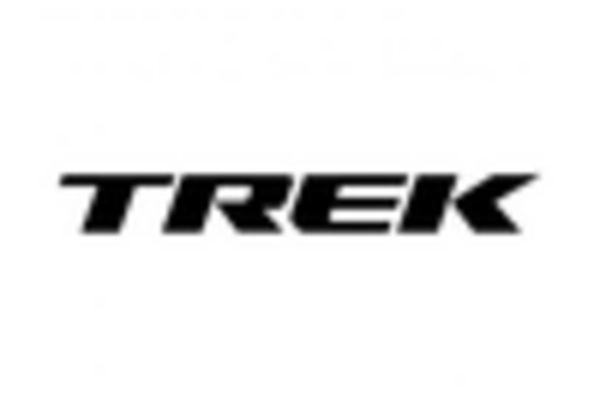E-Bike Popularity
The rise of e-bikes is transforming the bicycle market in Germany, appealing to a broader demographic. E-bikes offer an accessible alternative for those who may find traditional cycling challenging, such as older adults or individuals with mobility issues. In 2025, e-bikes are projected to account for over 25% of total bicycle sales in Germany. This growth is driven by advancements in battery technology and increased consumer awareness of the benefits of electric cycling. As e-bikes become more mainstream, the bicycle market is likely to expand, attracting new customers and enhancing overall market dynamics.
Environmental Regulations
Stringent environmental regulations in Germany are shaping the bicycle market by promoting eco-friendly transportation options. The government has implemented policies aimed at reducing carbon emissions, which include incentives for cycling and penalties for high-emission vehicles. As a result, there is a growing emphasis on bicycles as a sustainable alternative for short-distance travel. In 2025, it is anticipated that compliance with these regulations will lead to a 15% increase in bicycle sales, as consumers seek to align their transportation choices with environmental standards. This regulatory environment is likely to foster growth within the bicycle market.
Health and Fitness Trends
The growing awareness of health and fitness among the German population is significantly influencing the bicycle market. As more individuals prioritize physical well-being, cycling emerges as an attractive option for exercise and leisure. Recent surveys indicate that around 40% of Germans engage in cycling regularly for fitness purposes. This trend is further supported by the increasing availability of fitness-oriented bicycles, such as road bikes and mountain bikes, which cater to health-conscious consumers. Consequently, the bicycle market is likely to see a surge in demand for these specialized products, reflecting a shift towards healthier lifestyles.
Technological Integration
The integration of technology into bicycles is becoming a key driver for the bicycle market in Germany. Innovations such as smart bike features, GPS tracking, and connectivity with mobile applications are enhancing the cycling experience. These advancements appeal to tech-savvy consumers who seek convenience and improved functionality. In 2025, it is estimated that around 20% of new bicycle models will incorporate smart technology. This trend not only attracts a younger demographic but also encourages existing cyclists to upgrade their equipment, thereby stimulating growth in the bicycle market.
Urban Mobility Initiatives
The bicycle market in Germany is experiencing a notable boost due to urban mobility initiatives aimed at reducing traffic congestion and promoting sustainable transport. Local governments are increasingly investing in cycling infrastructure, including dedicated bike lanes and parking facilities. In 2025, it is estimated that approximately 30% of urban transport budgets are allocated to cycling projects. This shift not only enhances the appeal of cycling as a viable mode of transport but also aligns with broader environmental goals. The bicycle market is likely to benefit from these initiatives, as they encourage more individuals to adopt cycling as a primary means of commuting, thereby increasing overall market demand.
















